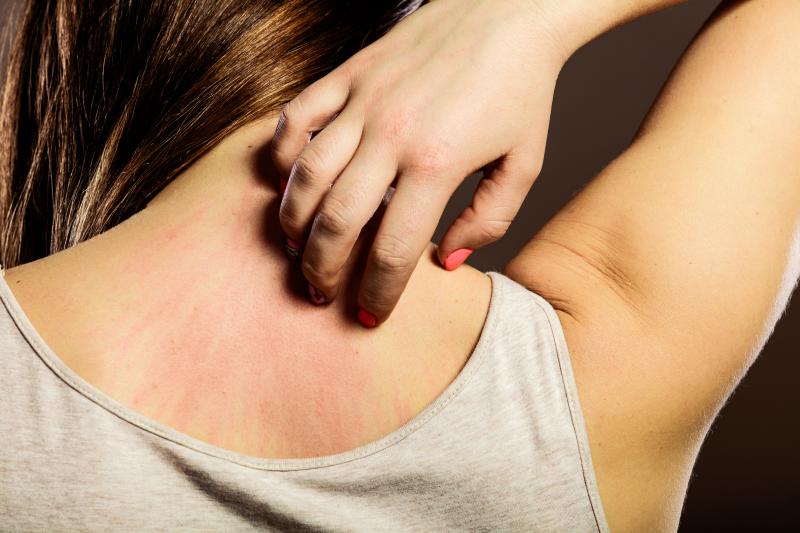
Treatment with serlopitant helps lessen pruritus associated with mild-to-moderate psoriasis, results of a phase II trial have shown. This supports the continued development of serlopitant for this condition.
The investigators examined the efficacy of serlopitant, an oral, once-daily neurokinin 1 receptor antagonist, for the treatment of psoriatic pruritus in a total of 204 patients. Participants were randomly assigned to receive either serlopitant 5 mg or placebo daily for 8 weeks.
Adult patients were eligible if they had plaque psoriasis for ≥6 months, plaques covering ≤10 percent of body surface area, pruritus for ≥4 weeks and Worst Itch Numeric Rating Scale (WI-NRS) score ≥7 at the initial screening. The mean age of participants was 47.5 years. More than half (54.2 percent) were women and 85.2 percent were white.
The mean baseline WI-NRS score for serlopitant was 8.3 and for placebo 8.1. The primary endpoint of WI-NRS 4-point response rate at 8 weeks was 33.3 percent for serlopitant compared with 21.1 percent for placebo (p=0.028). The corresponding rates at 4 weeks were 20.8 percent and 11.5 percent (p=0.039).
The incidence of treatment-related adverse events was comparable between serlopitant- and placebo-treated patients (4.9 percent vs 4.0 percent).
This phase II study had certain limitations, including the small sample size and the exclusion of patients with severe psoriasis.
“Pruritus, a common symptom of psoriasis, negatively affects quality of life,” the investigators noted. “[H]owever, treatment of lesional skin does not consistently alleviate psoriatic itch.”